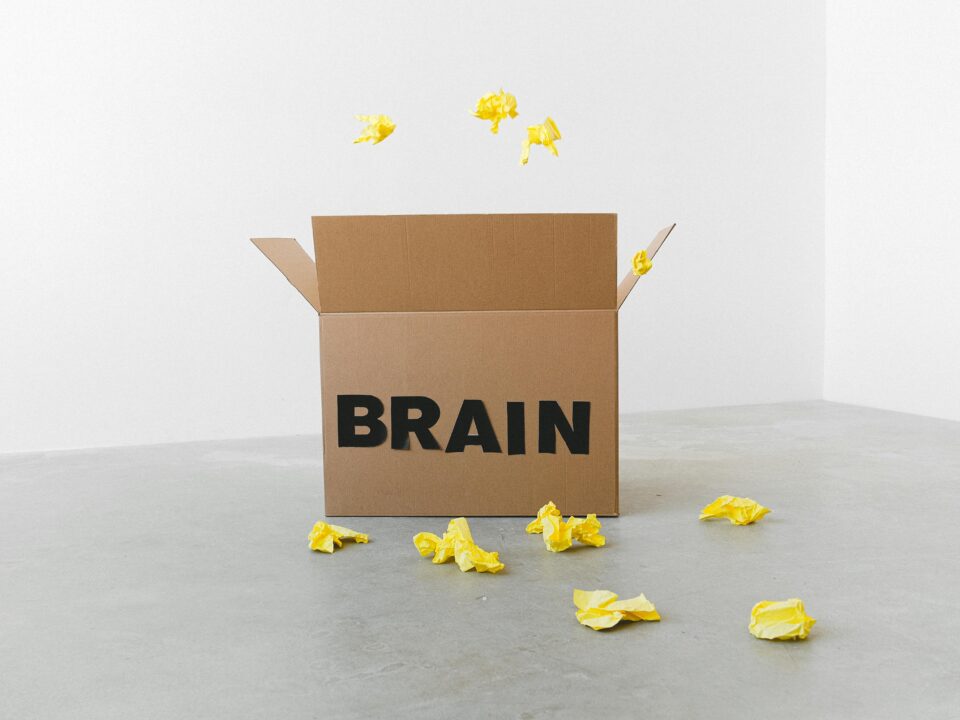Neurodiversity and The Holiday Season

Featured Image by cottonbro studio, Pexels.com
“It’s the most wonderful time of the year!” ♫
The holiday season is upon us. Often regarded as the happiest time of the year, December can be packed with activities and expectations, perhaps even more so this year after the whole country went into Covid lockdown last December.
Families, friends, and even co-workers are expected to spend quality time together, sharing stories, engaging in endless small talk, and preparing a feast like no other. Whilst it can be great to take some time away from work to focus on our relationships, the expectation to be constantly happy, cheerful, and social can cause unnecessary stress and anxiety.
This time of year can lead to some additional challenges for neurodivergent people. As neurodiversity is often a ‘hidden condition’, these challenges are not often taken into consideration by neurotypical people. The holiday period can be extremely stimulating, and we are all expected to suddenly start giving out endless handwritten cards and intricately wrapped gifts!
In this blog, we will explore the lived experiences of the holiday season and get some top tips and advice for making the most of the end of the year from our neurodiverse team members at Exceptional Individuals. Our team have a range of diverse backgrounds, experiences, and neurodiversities. As such, it is important to note that this blog post covers the lived experiences of individuals and won’t apply to everyone.
Routine Disruptions and The Importance of Scheduling

Image by Bich Tran, Pexels.com
The holiday season can be flooded with events to attend, places to be, and people to see. Many people feel obligated to attend numerous parties and celebrations.
We are often creatures of habit and the chaotic nature of the holidays can interrupt our rhythm. These interruptions can be especially challenging for people on the autistic spectrum (ASD). Individuals with ASD can prefer to have a consistent routine and may find it difficult to adjust to a new schedule with events at all hours. One tip to make the holiday season easier is to spread out the activities and try to retain aspects of normal day to day behaviours. Instead of spending one long day with family, spreading quality time out across a few days can help reduce anxiety and open up time for a normal routine.
People with Attention-Deficit/Hyperactivity Disorder (ADHD) can also find the disruption to their routine difficult as one of their challenges may be time management. Creating a physical schedule, or a schedule you can carry with you on your mobile phone is often an effective way to help manage one’s time during the holiday season and can prevent overwhelm.
Social Expectations

Image by Nicole Michalou, Pexels.com
During the holiday season, everyone is expected to be happy and cheerful, generous and giving, warm and inviting. Trying to manage others’ expectations and please everyone can be difficult and a source of anxiety.
During the holidays we can feel pressured to visit family, irrespective of our relationships or how we treat one another for the rest of the year. For some, being forced to see certain family members can cause painful memories from the past to resurface. For individuals with ASD, this can cause high levels of self-consciousness and catastrophizing (fixating on the worst-case scenario). These situations can cause individuals to feel like the world is caving in around them. They may try to escape or avoid these situations in any way they can. Remember to look after yourself first, social expectations can feel heavy, but it’s important to ensure your own wellbeing. You don’t need to spend time with people who make you feel anxious or uncomfortable (but do consider if it is them or just the situation).
Another common holiday tradition is drinking alcohol, particularly at work parties or with family. This excessive drinking can be difficult for people with dyspraxia, as they often struggle with coordination which can be exacerbated by alcohol, and this expectation can lead to social anxiety. Remember that it is okay not to drink, or to drink less than others. Non-alcoholic drinks are becoming more and more popular, and there are lots of new options now. Plus, you’ll feel fresh the next day!
Presents

Image by Nicole Michalou, Pexels.com
Gift-giving is a norm of the holiday season. Families and friends take turns opening presents and expressing gratefulness for gifts received. This process is not always easy, especially for those with ASD.
When opening gifts, there is a prescribed response of gratitude expected. Almost everyone has received a gift they disliked, but we try to act happy because we are socialised to do so.
For individuals with ASD, hiding raw emotions and acting happy upon receiving a gift they dislike can be more difficult. Because real, felt emotions tend to be displayed, many individuals with ASD may experience anxiety towards opening gifts because they are worried about hurting the gift giver’s feelings which causes them to feel bad. One tip may be allowing the person receiving the gift to open it later when they are by themselves. This may alleviate the pressure felt to act a certain way. Some may even prefer a Christmas without presents at all, it all depends on the individual. If this isn’t an option, consider using stock phrases, like always saying “thank you”, whether you like the gift or not.
The Importance of Budgeting

Image by Breakingpic, Pexels.com
Budgeting during the holidays is one of the most important strategies in ensuring a happy holiday season and a positive start to the new year. However, for people with ADHD, budgeting can be challenging due to increased friction in executive functioning processes.
While budgeting may be slightly more difficult for people with ADHD, it may also be more important as a common characteristic of ADHD is impulsiveness. The pressure of the holiday season can cause impulsive and excessive spending when attempting to keep up with the Joneses. Overspending can often lead to regret, or “buyer’s remorse”, in the new year. It is important to avoid shopping at the last minute, and to factor in supplementary costs such as postage.
Effective budgeting can create a positive feeling, knowing you prioritized during the year to afford gifts for loved ones, and can also reduce “buyer’s remorse” in January.
Festive Holiday Traditions

Image by Any Lane, Pexels.com
Christmas holiday activities include wrapping gifts, handwriting cards and personalised gift tags, and decorating the tree.
For people with dyslexia or dyspraxia, writing out endless cards can feel daunting. However, there are now some great online services where you can send amazing interactive cards virtually, which is a bonus for all those trees that are cut down each year for cards that only last a few weeks!
People with dyspraxia may find that their motor skills are pushed unexpectedly during the holiday period, and this can lead to unnecessary stress. There’s a sudden expectation to decorate biscuits and trees and produce beautifully wrapped gifts! We recommend using gift bags if this is something that causes you anxiety, or, if you’re feeling fancy, there are lots of companies that do complimentary gift wrapping during the holiday season. You can also now get pre-lit trees, so no need to worry about the inevitable tangled fairy lights.
Christmas Cheer

Image by Olya Kobruseva, Pexels.com
While the holiday season may bring about challenges for neurodivergent individuals, this time of year is also filled with love and joy. Many neurodivergent members of our team expressed heartwarming gratitude for the time they get to spend with those they love most during the holiday season. The end of December marks a time to stop, relax, and spend time with those we love.
Even though our plates get heavier around the holidays with the abundance of responsibility, the love and joy present during this time of year can create a magical child-like joy in all of us!
From all of us at Exceptional Individuals, we want to wish you a joy-filled and magical holiday!
Tips for neurodivergent Individuals:
DO:
- Spend time with those who make you feel loved and appreciated.
- Put yourself first. Make sure your cup is full before filling up anyone else’s cup.
- Budget for holiday expenses.
- Share where you can things that make you anxious, articulating your needs to loved ones you trust is important.
- Schedule out your month in detail.
- Complete Christmas shopping well in advance.
- Plan for supplementary spending such as postage costs.
AVOID:
- Forcing yourself into unsafe spaces with people who do not accept your authentic self.
- Trying to keep up with the Joneses, you may regret it in the new year.
- Overstuffing the turkey, try not to overwhelm yourself with too many things.
- Accepting unwanted behaviour just because it is the holiday season.
- Waiting until the last minute to plan.
- Delaying Christmas shopping until the last minute, it makes it harder to stay on budget.
- Assuming you have to be alone or talking yourself out of engagements.
- Feeling that everything has to be perfect, do not overreach your ability.
- If you can not bring yourself to participate, do not be too hard on yourself, even if you are alone, the point is to enjoy yourself.
Tips for neurotypical allies
DO:
- Have 1 on 1 conversations with family members you know get overwhelmed in large groups.
- Break up holiday events into smaller chunks.
- Make invitations optional for those that may struggle but feel compelled.
AVOID:
- Forcing someone to talk, just because they may be quiet does not mean something is wrong.
- Endlessly stressing the importance of one single day.
- Generalising language like “typical” or “just like you” regarding lateness or other forms of unpreparedness.



